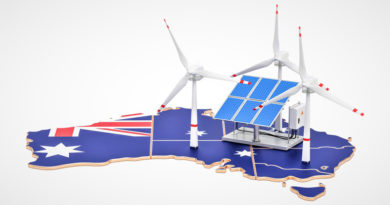Building as a Battery Storage – Novel Technology Comes Up!
 AANGAN Kicks off in Delhi
AANGAN Kicks off in Delhi
Energy storage is an inalienable tenet in renewable energy whose timely development is necessary to ensure a proper balance in the supply and demand of green electricity. In a unique development, the International Institute of Applied Systems Analysis (IIASA) researchers have come up with a new energy storage concept that could turn tall buildings into batteries to improve the power quality in urban settings.
In their study published in the journal ‘Energy,’ IIASA researchers propose a gravitational-based energy storage solution that uses lifts and empty apartments in tall buildings to store energy. The authors call it ‘Lift Energy Storage Technology’ (LEST), which stores energy by lifting wet sand containers or other high-density materials, which are transported remotely in and out of a lift with autonomous trailer devices.
The LEST is an interesting option, because lifts are already installed in high-rise buildings, which means there is no need for additional investment or space occupancy, but rather using what is already there in a different way to create additional value for the power grid and the building owner.
Julian Hunt, a lead author at IIASA, explains, “The concept of gravity energy storage has also recently received significant attention in the scientific community and start-ups. The concept of LEST came to me after having spent a considerable amount of time going up and down in a lift since recently moving into an apartment on the 14th floor.”
According to the authors, the main challenge in making a gravity energy storage solution viable is the power capacity cost. The most important benefit of this energy storage system is that the power capacity is already installed in lifts with regenerative braking systems. There are over 18 million lifts in operation globally, and many of these spend a significant amount of time sitting still.
The study says that developing this energy storage system includes finding room to store the weights the system relies on at the top of the building when the system is fully charged, and at the bottom of the building when the system is discharged. Empty apartments or corridors could be viable options in this regard. Another consideration is the ceiling bearing capacity of existing buildings where the system is installed; the ceiling should support the energy storage without collapsing. The energy storage technology can be best suited for the cities as it will greatly benefit the energy grid and LEST can provide affordable and decentralized ancillary services.
Behnam Zakeri, the co-author of the study, informs, “Environmentally friendly and flexible storage technologies like LEST are set to become more and more valuable to society in a future where a large share of its electricity comes from renewables. Therefore, policymakers and power system regulators need to adopt strategies to incentivize end users, in this case, high-rise buildings, to share their distributed storage resources, such as LEST, with the central grid.”
R&D is gaining pace in the energy storage segment because the global solar panels, wind turbines, and other renewable energy capacity is expected to rise by more than 60% from 2020 levels by 2026. This is equivalent to the current total global power capacity of fossil fuels and nuclear combined. Transitioning to a low- or zero-carbon society, however, requires innovative solutions and a different way of storing and consuming energy than traditional energy systems.




